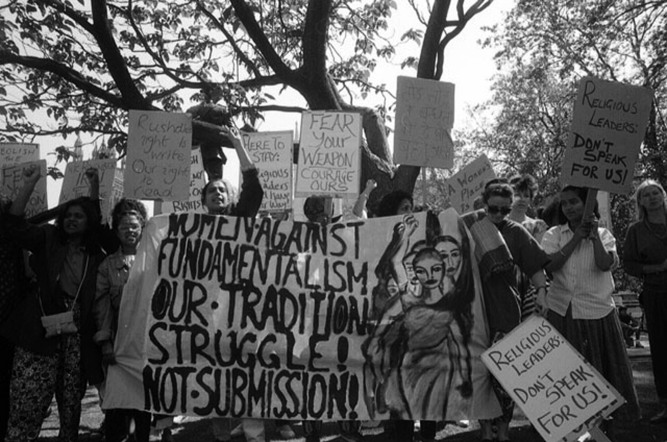
9 countries with women on their currency
April 25, 2016
Meet Ibtihaj Muhammad
April 28, 2016For women throughout the world, fundamentalism in politics and religion have often been described as oppressive. Accusations of human rights abuses are made by global watchdog agencies, but often the world has few options available to intercede in behalf of these women. As we have seen in Syria, Nigeria and a host of other countries, women bear the brunt of fundamentalism in terms of restrictions to basic necessities, limited health care, lack of control over their own bodies and even lack the freedom of movement outside of their homes. This oppressiveness ignores the evidence that has shown time and again how important women are to the economic and social health of a society. Without the benefits of their input, societies fail to prosper. For example, it has been noted that when women are in charge of the family’s money, the funds are reinvested into the family itself. This means better food and standard of living for all the members, along with educational opportunities for the children, both female and male.
However, fundamentalism stunts the growth of its communities. For instance, the girls who were kidnapped in Nigeria lost all of their freedoms, in addition to being assaulted physically and sexually. The reason for this mistreatment? Simply put, it was because the girls were going to school, which violates the tenets of fundamentalism. These girls will not be able to contribute economically or politically because of this kidnapping, a loss to us all. Yet, this is not limited to countries in just a few regions. Women fight fundamentalism principles in wealthier countries as well. In Saudi Arabia, women find themselves fighting for the right to drive themselves to work, shopping and other events. Cars can be taken by authorities and the women must pay fines and impoundment fees to have their cars returned to them.
For those women who live in Western Europe and the United States, the idea of being unable to drive, make reproductive choices or receive an education are foreign. These women have taken advantage of the freedoms encased in the laws of their lands to push for greater equality. Yet for lands suffering under the heavy hand of fundamentalism, the males of your family and town are the law. If they feel you have violated one of the strict mandates, the punishment can be severe. Acid to the face, beatings and sexual assault are just a few of these punishments meant to teach a woman her place, while also allowing her to serve as an example to other women.
Does this mean the situation itself is hopeless? No, because groups continue to fight fundamentalism in a variety of areas. One of the main ways is through educational grass-roots efforts. These use the natives to teach women skills, providing them opportunities to earn funds for themselves and their families. Breaking the cycle of poverty can often assist in changing the minds of the males who push a fundamentalist agenda. Another is the removal of the fundamentalism itself. This is much harder to achieve, but it can be done.
For those who are part of the fight for the removal of fundamentalism would mean the returning of many basic human rights to women. However, it would also mean a chance for women in other areas of the Middle East to assert their basic human rights without the mullahs supporting the fundamentalist agenda. Dignity is important for all individuals, female and male alike. Fundamentalism strips women and men of their dignity, because it encourages oppression. However, if individuals and societies stand up to fundamentalism and demand change, then the world can see progress as women are accorded their place of equality within our global community.





1 Comment
deltasone 20mg for sale – nateglinide 120mg generic captopril cost